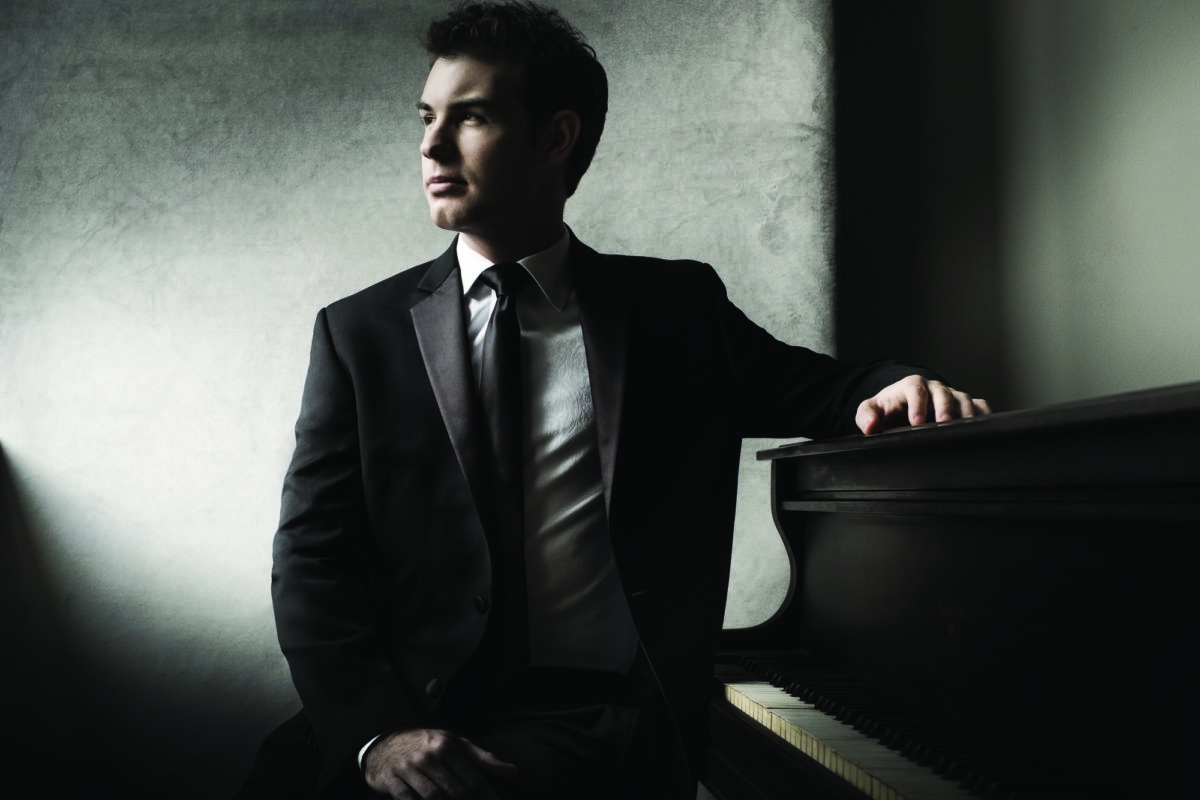As noted in an earlier post, the San Francisco Symphony will stage its much anticipated “Spotlight Series” March–June 2022 include pianist Drew Petersen, violinist Randall Goosby with pianist Zhu Wang, violinist Noa Wildschut with pianist Elisabeth Brauß, and saxophonist Steven Banks with pianist Xak Bjerken.
Mr. Petersen has been kind enough to share some of his insights with Cultural Currents readers in this exclusive interview.
Cultural Currents: At what point does a young prodigy know that he’s become a seasoned professional?
Drew Petersen: As I did begin performing at a very young age, I can’t point to a specific moment when I felt “grown up.” However, I can affirm the two stages are different. To me, being a professional requires a knowledge of one’s own conception of “excellence” — the discernment of one’s own playing ability, but also of the merits of repertoire and of one’s colleagues. Discerning and maintaining this level of excellence is an absolutely necessary lifetime commitment to be able to engage with the music in the most compelling way. So there are expectations attached to being a “professional”, and I’d imagine “seasoned” to mean rising to those expectations pretty consistently. On the other hand, and I realize I might have been very fortunate in this regard, my life as a young prodigy did not come with these same expectations. I always wanted to play music, so “practicing” was rarely an issue, but feeling pressure to perform at a certain level was not an integral part of my youth. Rather, the focus was on my relationship and love for the music and the craft of working through this music. Eventually, however, even the purest of us young musicians need to develop honest self-awareness and self-criticism. To summarize in a terse quip, one is a professional when he “knows better”!
CC: How has the pandemic shaped your vision and performance sensibility?
Petersen: If there were ever a time in my life when I feel I can’t take live performance for granted, these past two years were it! I’ve always enjoyed the “energy exchange” between performer and audience that is such an integral part of the experience, but a few years ago I was beginning to seriously explore this phenomenon’s connection to my artistic process. I had begun to realize that my relationship to the music I perform continues to develop through its communication (communion?) with a live audience. Certain things can’t be fully explored/worked out until the audience is included in the process. This realization was great and all, but we all know something else pretty significant happened a few years ago, and it led to the complete eradication of live performances for quite some time! Back to the isolated practice room I went. When I was able to (finally) share music again in-person, I was all the more inspired by the ability of music to bring people together, as well as by our ability to respond to the music together. Restarting this feedback loop has motivated me to be even more present in the moments we have together with music.
CC: As an advocate for youth in the arts, what are today’s greatest challenges?
Petersen: I won’t claim to know all the answers, but I can comment on what I continue to see. Today’s world is becoming both easier and more difficult to live in. Easier because many of us can access almost anything our hearts desire with minimal effort, and more difficult because we are all totally inundated with more information, frustration, and tragedy than we could ever process. Any great art, in any medium, makes two demands of its viewer: sustained attention and an open, receptive mind. Our world of instant gratification continually diminishes our attention spans, and we are all so overwhelmed with information that we struggle to be anything but cynical toward experience and life. It may seem like too much to expect audiences to go out of their way to appreciate great music, visual art, literature, drama with all that it demands of us above and beyond what the world demands of us. But, paradoxically, great art does not drain us. Rather, art replenishes us, restores us, connects us to each other over space and time, and gives meaning to our humanity. It nourishes the soul and these nourished souls can return to the world and build more beautiful and more meaningful communities.
CC: Any thing to add to this observation?
Petersen: Yes, these issues are prevalent among all ages, and I welcome everyone to engage with music, whether by playing an instrument or coming to concerts! Why then do I focus on young people? I enjoy working with young people out of all demographics because on the whole they are more open-minded, curious, and receptive to new information and experience. They also have more time to explore their world and themselves. They also have their whole lives ahead of them, so a bit selfishly I’d like to think that the investment in young audiences will result in more years of concert attendance! But more importantly, pianist/composer Sergei Rachmaninoff remarked “Music is enough for a lifetime, but a lifetime is not enough for music”, so I’d say better get started ASAP!
CC: You have traveled extensively in the U.S. this past year. How does the San Francisco Bay Area compare to your other destinations?
Petersen: Well, it’s really hard to beat the Bay Area’s weather and views! I always look forward to returning to this part of the world because it is just so beautiful, and in all my travels throughout the U.S. and abroad I’ve come across nowhere else quite like it.

